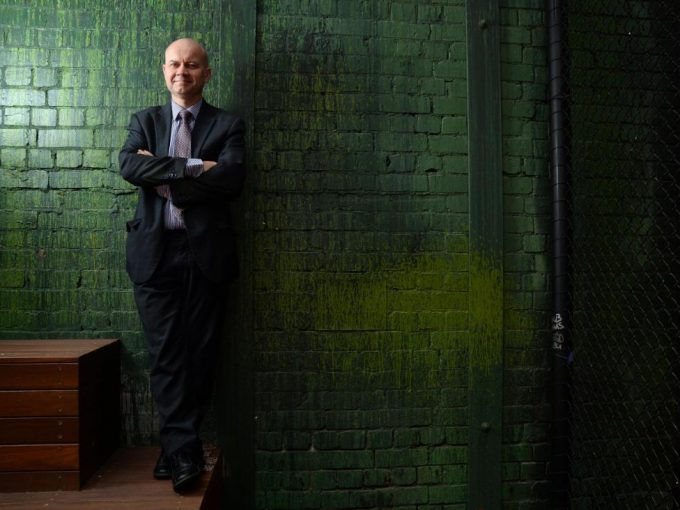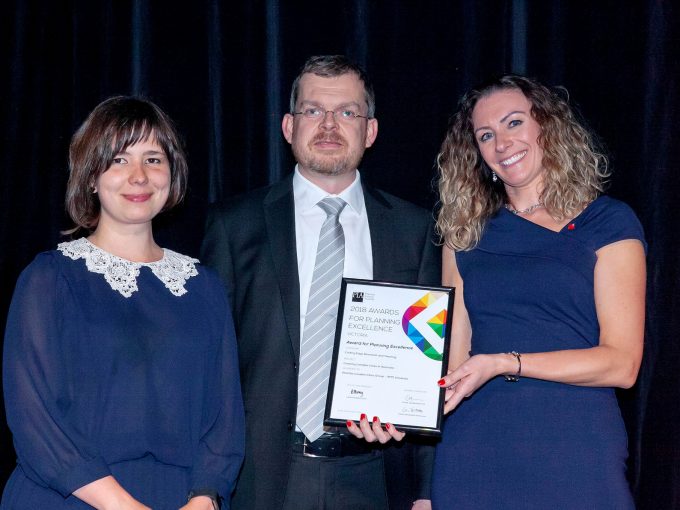RMIT researchers have been awarded $6.37 million in funding, in the latest round of Australian Research Council (ARC) funding schemes.
Research funded through grants announced recently include projects to improve management of urban forests, develop 3D printing of titanium alloys for biomedical and aerospace applications, and analyse local climate change adaptation approaches.
A new facility for advanced optical and chemical spectroscopy of thin films, materials and devices will be established through a $410,000 Linkage, Infrastructure, Equipment and Facilities (LIEF) grant.
Led by Dr Sharath Sriram, co-leader of the RMIT Functional Materials and Microsystems Research Group, the facility will accelerate research in materials and devices for optics, electronics, biomedicine, security and forensic science.
A Discovery Indigenous Scheme grant of $529,000 was awarded to Associate Professor Barry Judd, from the School of Global, Urban and Social Studies, to examine Indigenous identity through organised sport in remote communities.
The project will address the problem of how participation in organised sport affects identity and everyday life in remote Indigenous communities, both positively and negatively, providing the basis for policy development and formulation.
Four early career researchers were awarded Discovery Early Career Researcher Award (DECRA) grants, totalling more than $1.34 million, while more than $4.08 million was awarded to 11 research projects in Discovery Project grants.
Professor Calum Drummond, Deputy Vice-Chancellor, Research and Innovation, said the outcome reinforces the University’s focus on important areas of research impact.
“This solid result demonstrates RMIT’s strong support of outcome-oriented research through providing valuable contributions to industry, society and the natural environment,” Professor Drummond said.
“Our ongoing focus is on delivering solutions to meet national and global needs.”
RMIT projects that received funding in this ARC round:
Discovery Projects
- Nicotinic receptor structure and function probed with conotoxins ($634,100). Lead investigator: Professor David Adams, Director of the Health Innovations Research Institute.
- “Seeing the good from the trees”: remotely sensing the urban forest ($274,300). Lead investigator: Associate Professor Marco Amati, School of Global, Urban and Social Studies.
- Reputation-based Trust Framework for Composed Services ($280,100). Lead investigator: Professor Athman Bouguettaya, Head of the School of Computer Science and Information Technology.
- Evaluating environmental policies with immediate costs and long-term gains ($344,200). Lead investigator: Dr Ascelin Gordon, Research Fellow, Interdisciplinary Conservation Science Research Group.
- Enabling social innovation for local climate adaptability, ($172,500). Lead investigator: Professor Jean Hillier, School of Global, Urban and Social Studies.
- Public Wi-Fi as Urban Infrastructure – the Australian Case ($289,700). Lead investigator: Dr Ian McShane, Senior Research Fellow, Centre for Urban Research.
- Silicon-photonic devices harnessing new resonance phenomena enabled by polarization coupling ($296,300). Lead Investigator: Professor Arnan Mitchell, Leader, Microplatforms Research Group.
- CMOS compatible nonlinear photonic integrated circuits ($743,900). Lead investigator: Professor David Moss, School of Electrical and Computer Engineering.
- New statistical approaches for analysing foodwebs and species distributions ($295,900). Lead Investigator, Professor Lewi Stone, School of Mathematical and Geospatial Sciences.
- 3D printing of titanium alloys for better-than-forged mechanical properties ($311,000). Lead investigator: Professor Ma Qian, Professor of Design, Multifunctional Structures, School of Aerospace, Mechanical and Manufacturing Engineering.
- Baseline-free Early Damage Diagnosis using nonlinear ultrasonics ($443,900). Lead Investigator: Professor Chun Wang, Director, Sir Lawrence Wackett Aerospace Research Centre.
Discovery Early Career Researcher Award (DECRA)
- Metal oxide memristors: Switching phenomena in van der Waals nanostructures ($360,000). Lead investigator: Dr Shiva Balendhran, School of Electrical and Computer Engineering.
- Controlling Defects in 2D Materials for Advanced Optoelectronics ($301,700). Lead investigator: Dr Anthony Morfa, School of Electrical and Computer Engineering.
- Geometry and Conditioning in Structured Conic Problems ($315,000). Lead investigator: Dr Vera Roshchina, School of Mathematical and Geospatial Sciences.
- Automating the smart home: an investigation of automated cooling practices and their energy consumption impacts ($370,000). Lead investigator: Dr Yolande Strengers, Vice Chancellor’s Senior Research Fellow, Centre for Urban Research.
Originally published on RMIT News.





